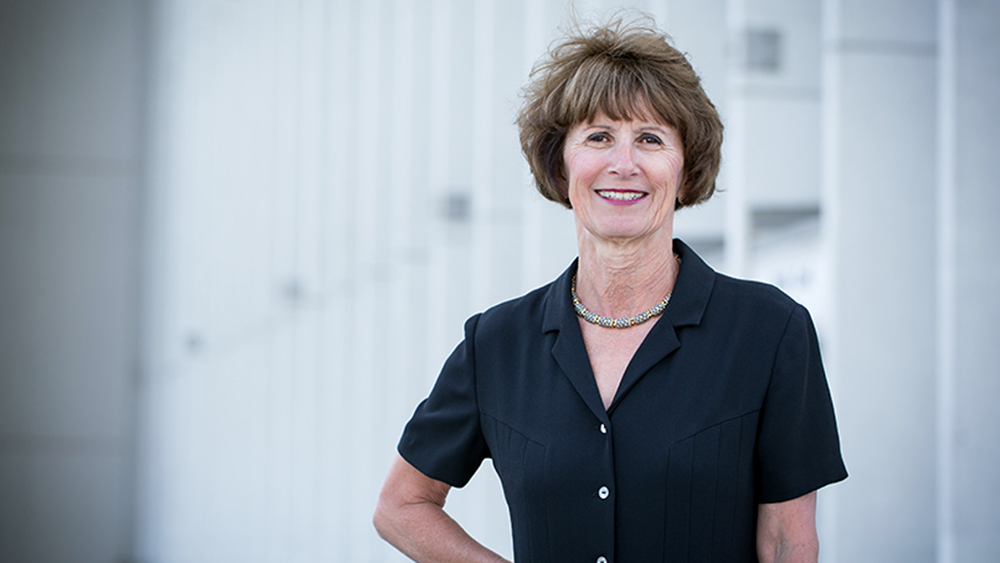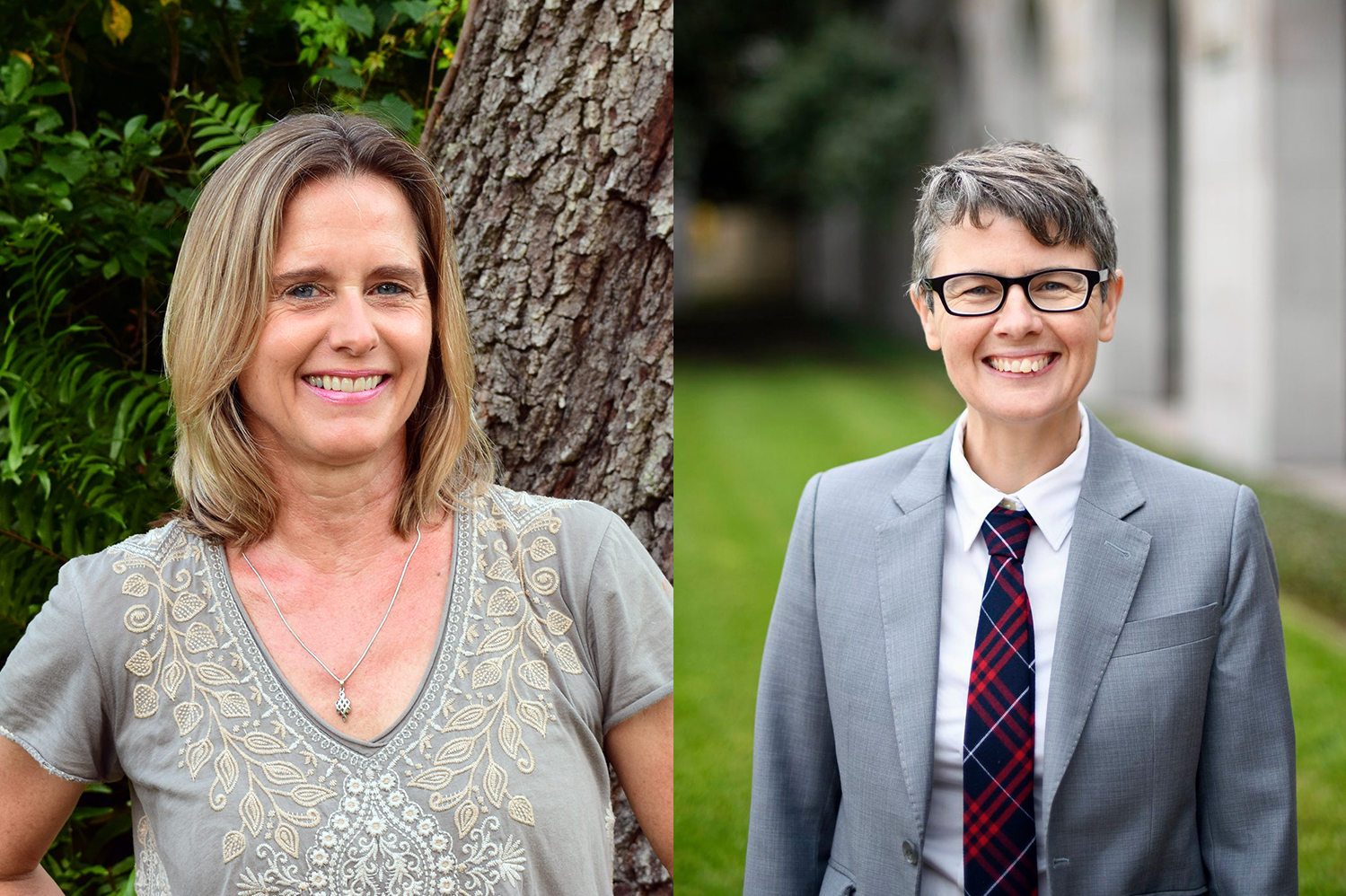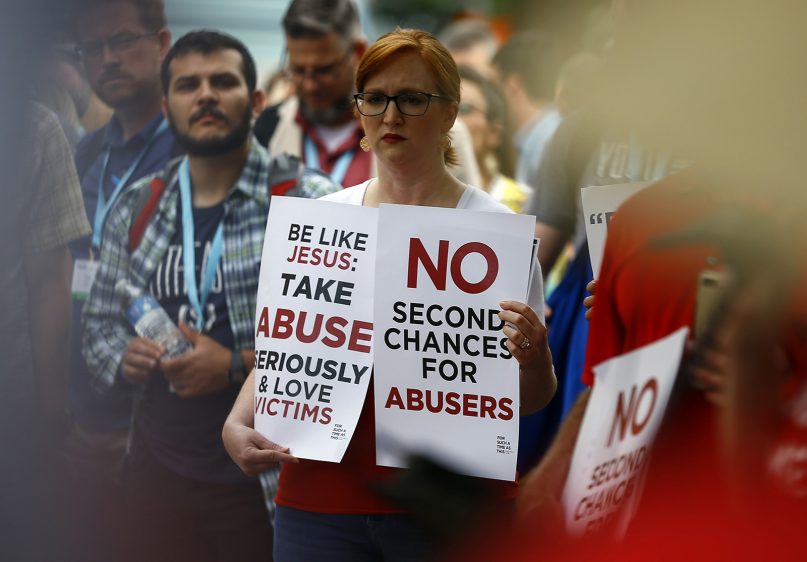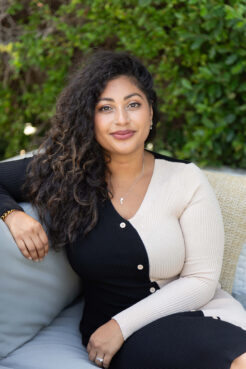(RNS) — Hollywood, the USA Gymnastics team, Penn State, the Boy Scouts: Sexual abuse has proved pervasive across institutions. And when it comes to faith groups, no creed, structure, value system or size has seemed immune.
“We’ve got to stop saying that could never happen in my church, or my pastor would never do that,” said David Pooler, a professor of social work at Baylor University who researches clergy-perpetrated sexual abuse of adults.
With more victims coming forward and more research done on abuse within religious contexts, the evidence has shown that when sexual abuse happens in a place designated not only safe, but holy, it’s a unique form of betrayal — and when the perpetrator is a clergy member or spiritual leader, the abuse can be seen as God-endorsed.
As the scope of this crisis has been revealed, houses of worship and religious institutions — from Southern Baptists to Orthodox Jews to American atheists — have looked to shore up their safeguarding protocols and protect their constituents against abuse.
But rather than scrambling to respond in the wake of a crisis, faith groups need to adopt policies tailored to their setting and connected to their mission, says Kathleen McChesney, who was the first executive director of the Office of Child Protection for the U.S. Conference of Catholic Bishops.

Kathleen McChesney. (Photo courtesy of McChesney)
“When you do that, people will have a greater understanding of what you’re doing, why you’re doing it, and how you’re doing it,” said McChesney, one of a growing group of abuse experts and survivor advocates consulting with religious institutions.
As Sexual Assault Awareness Month comes to a close, there are a few steps these experts say every faith group can take to improve safeguarding protocols.
Accept it can happen anywhere
One of the most dangerous — and common — assumptions religious groups make is to think of sexual abuse as a “them” problem. As the founder of international nonprofit Freely in Hope, Nikole Lim has worked for years to combat sexual violence in Kenya and Zambia, and more recently has been helping U.S.-based groups prevent sexual abuse locally. For Lim, the reality that 1 in 3 women and 1 in 6 men worldwide are survivors of sexual abuse is evidence this is a problem that permeates every level of society. “That’s a global statistic that doesn’t only exist in poor communities,” said Lim. “That also exists within your family, within your congregations.”

Nikole Lim. (Courtesy photo)
Experts agree that faith groups often embrace the myth that good intentions, theology and ethics can stop sexual abuse from landing on their doorstep. Amy Langenberg, a professor of religious studies at Eckerd College, along with her research partner Ann Gleig, a religious and cultural studies scholar at the University of Central Florida, have shown that Buddhist ethics about doing no harm and showing compassion are insufficient to prevent abuse in Buddhist contexts.
“You really do need these other ways of thinking about ethics, which are coming from outside of Buddhism, and which are coming usually from feminism, from advocacy, from the law,” said Langenberg.
Because faith communities often think of themselves as the “good guys,” they’re vulnerable to blind spots. That’s why conducting a risk assessment, much like you’d do for fire insurance, can help pinpoint what protocols are most needed, according to McChesney, who now leads a firm that consults on employee misconduct investigations and policy development. Once concrete anti-abuse measures are in place, ongoing education can remind people at all levels of the organization to remain vigilant.
Define abuse
Faith groups often struggle to respond effectively to sexual misconduct because they lack consensus on what “counts” as abusive. Gleig, who is teaming up with Langenberg on a book-length study called “Abuse, Sex, and the Sangha,” told Religion News Service that in Buddhist contexts, the category of abuse is often contested. In some cases, Gleig said, “abuse can be framed as a Buddhist teaching — for example, that this wasn’t abuse, it was actually some kind of skillful form of pedagogy.”

Amy Langenberg, left, and Ann Gleig. (Photos courtesy of Rice University)
In churches, Lim has found that loose definitions of abuse can lead to a form of “spiritual bypassing,” where abuse is framed as a mistake to be prayed about, rather than an act of harm that requires tangible accountability.
Conversations about sexual abuse in religious settings are often framed around clergy abuse of children. But faith groups must also account for peer-on-peer violence among children and teens, as well as abuse of adults. Key to preventing such abuse, Pooler said, is having a robust definition of sexual abuse that goes beyond mere legal metrics and includes things such as sexual conversations, nonconsensual touch and sexual jokes and language.
Recognize power dynamics
The unequal power dynamics inherent to religious settings are an enormous barrier to equitably addressing sexual abuse. But the law is beginning to account for this imbalance. In at least 13 states and the District of Columbia, it’s illegal for clergy to engage in sexual behavior with someone in their spiritual care — and many experts believe this standard, which is widely embraced when it comes to doctors and therapists, should be universal in religious settings, too.
According to Pooler, religious groups should work to share power among multiple leaders and ensure that the broader community has decision-making authority. And when sexual abuse allegations involve a religious leader, “the person should be placed on some type of leave where they are no longer influencing or speaking,” said Pooler, “because what I have seen is abusive people will try and grab ahold of the microphone and shape a narrative immediately.”

Rowena Chiu, from left, Jean Nangwala, Irene Cho, and facilitator Bigad Shaban participate in a panel during the Freely In Hope event titled “Redeeming Sanctuaries: Ending Sexual Abuse in the Church” in San Francisco in June 2023. (Photo courtesy of Freely in Hope)
Center survivors
Experts commonly observe a default reaction in religious settings to to protect the reputation of the faith group or clergyperson over investigating an abuse allegation. But defensive postures often overlook the person who, at great risk, reported the abuse in the first place.
When a survivor shares abuse allegations, faith groups often fear what will happen if they take the report seriously. For example, Navila Rashid, director of training and survivor advocacy for Heart, a group that equips Muslims to nurture sexual health and confront sexual violence, said Muslim communities can be hesitant to address sexual violence because they don’t want to add to existing Islamophobic narratives about the violence of Islam. But Rashid told RNS it’s vital to believe survivors. “If we can’t start off from that premise, then doing and creating preventative tools and methods is not going to actually work,” she said.
Pooler advises groups to make sure survivors “sit at the steering wheel” of how the response is handled — if and when personal details about the survivor are shared, for example, should be entirely up to them. Caring for abuse survivors requires taking their needs seriously at every juncture, even before abuse is reported, according to Pooler and other experts. That’s why background checks are vital.
“You don’t want to put somebody that has abused a minor ever in a role of supervising minors,” McChesney told RNS.
Get outside help
Faith communities are known for being close-knit, which makes avoiding conflicts of interest difficult, if not impossible, when it comes to holding offenders accountable. That’s why many experts recommend hiring outside groups to hold trainings, develop protocols and steer abuse investigations.
“They don’t have any investment in the church looking good or their leaders looking good,” Pooler said about hiring groups such as GRACE (Godly Response to Abuse in the Christian Environment) or other third-party organizations that investigate abuse allegations. These organizations, he said, are committed to laying out the facts so faith groups can make informed decisions. Groups that are trauma-informed can also ensure that gathering testimony from survivors doesn’t cause additional harm.

David Pooler. (Courtesy photo)
Rashid recommended that faith communities create a budget line for hiring outside groups who focus on addressing sexual abuse. Rather than offering quick fixes, she said, such groups are designed to help faith communities unlearn biases, recognize power dynamics and adopt long-term solutions at individual, communal and institutional levels that prioritize the safety of all community members.
“What we want to see with policies is pushing for a culture shift,” she said, “not a Band-Aid fix.”






